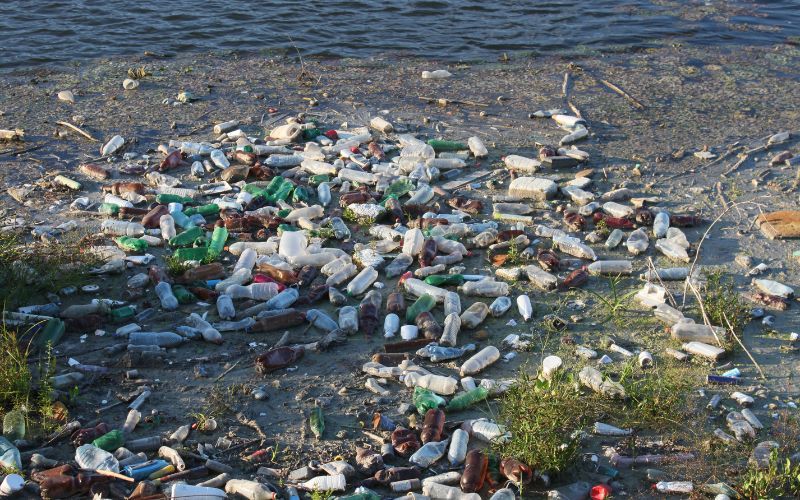Plastic pollution is a global crisis that affects our environment, wildlife, and human health. With millions of tons of plastic waste entering our oceans and landfills each year, it’s crucial for individuals to take action to mitigate this growing problem. Fortunately, reducing plastic pollution doesn’t require monumental changes—small, everyday actions can collectively make a significant impact. Here are some simple steps everyone can take to help reduce plastic pollution:
1. Refuse Single-Use Plastics
One of the most effective ways to combat plastic pollution is to refuse single-use plastics. This includes items like plastic bags, straws, cutlery, and food containers. Instead, opt for reusable alternatives—bring your own shopping bags, use a reusable straw, and carry your own utensils when dining out. By making these small changes, you can significantly reduce your reliance on single-use plastics.
2. Choose Reusable Water Bottles
Instead of purchasing bottled water, invest in a durable, reusable water bottle. Not only does this reduce plastic waste, but it also encourages you to stay hydrated while saving money in the long run. Many reusable bottles come with insulation features that keep your drinks cold or hot for extended periods.
3. Support Sustainable Brands
When shopping, choose brands that prioritize sustainability and environmentally friendly practices. Look for companies that use biodegradable, recyclable, or reusable packaging. By supporting these brands, you contribute to a market that values sustainability and encourages other businesses to follow suit.
4. Reduce Food Packaging Waste
Many food items are packaged in plastic, contributing significantly to plastic waste. Whenever possible, buy in bulk or choose products with minimal packaging. Bring your own containers to stores that allow you to refill items like grains, nuts, and liquids. Additionally, consider shopping at local farmers’ markets, where fresh produce often comes with less packaging.
5. Recycle Properly
Recycling is a crucial step in reducing plastic pollution. Familiarize yourself with your local recycling guidelines to ensure you’re recycling correctly. Rinse out containers and remove labels when necessary. If your community has a recycling program for specific types of plastics, such as bags or films, be sure to participate.
6. Educate Yourself and Others
Knowledge is power. Stay informed about the impact of plastic pollution and share what you learn with friends and family. By raising awareness about the issue, you can inspire others to take action as well. Social media platforms are great tools for spreading awareness and advocating for change in your community.
7. Participate in Clean-Up Initiatives
Get involved in local clean-up events, such as beach clean-ups or park restoration projects. These activities not only help remove plastic waste from the environment but also foster a sense of community and raise awareness about the importance of keeping our surroundings clean. Organizing your own clean-up event can also be a great way to engage others.
8. Advocate for Change
Support policies and legislation aimed at reducing plastic pollution. This can include advocating for bans on single-use plastics, encouraging the development of better waste management systems, and pushing for increased recycling efforts in your community. Engage with local representatives to express your concerns and support for sustainable initiatives.
9. Be Mindful of Personal Care Products
Many personal care products, such as exfoliating scrubs and toothpaste, contain microplastics that contribute to plastic pollution. Look for natural or biodegradable alternatives that do not contain plastic ingredients. Opt for solid bar soaps, shampoo bars, and other plastic-free personal care options.
10. Practice Minimalism
Adopting a minimalist lifestyle can help reduce plastic consumption. By buying only what you need and focusing on quality over quantity, you’ll not only minimize plastic waste but also save money. Emphasize experiences over material possessions, and you’ll find yourself naturally reducing plastic use.
Conclusion
Reducing plastic pollution is a shared responsibility that requires action from individuals, communities, and governments. By taking these simple steps, everyone can contribute to a cleaner, healthier planet. Remember that every small action counts; together, we can create a significant impact in the fight against plastic pollution and pave the way for a more sustainable future.


